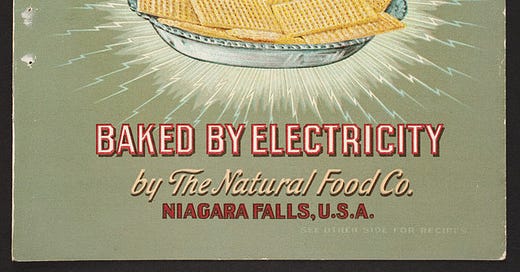
I was a relatively early adopter of Wikipedia. When I was in college in the early 2000’s, I would evangelize Wikipedia as the closest thing we had to complete world knowledge. And my friends would laugh at me. Anyone could edit it! It was full of errors! Vandals could run rampant!
But I’d like to think that I won this argument. Whether or not it’s acceptable as a reference source for reports in middle school and high school, it is now the place where people go to resolve bar bets, learn about probability distributions, or find the details of old television shows. The Encyclopedia Galactica is here, and it is Wikipedia.
That’s why I was so delighted to read a recent Wired article on Wikipedia, with the apt title of “Wikipedia Is the Last Best Place on the Internet.” Go read the piece; it’s fantastic.
One of the most important features of Wikipedia—and the fraction of the Internet that Wikipedia represents—is a deeply obsessive approach to knowledge. If you want to learn about the border irregularities of the United States, the details of license plates throughout the world, or, as I detailed in a previous issue, want to learn the pocket histories of interstellar societies, Wikipedia is where these tendencies thrive. But here’s the thing: it’s not that Wikipedia rewards this kind of thinking. Rather, this is the true nature of the world: it is deeply weird and fractally complex. Wikipedia simply creates a space for this, a place where fractal weirdness can thrive.
I’ve spent a lot of time thinking about the complexity and messiness of knowledge—both scientific and technological—in both of my books The Half-Life of Facts and Overcomplicated. And one of the takeaways of all of this thinking of mine has been that there are so many nooks and crannies to knowledge. As much as we would like our understanding of the world to be clean and elegant, it’s not. There are exceptions to general rules, odd historical incidents, and just the bonkers nature of society. And Wikipedia has a home for it all.
We need to make a place for the exceptions and the weirdness of the universe, rather than trying to make everything conform to simple rules, or simply even fit within the confines of a complete set of the Encyclopædia Brittanica. What we know about the messiness and intricacy of the world should not be limited to the length of a bookshelf. It should be unbounded and ever-growing. Wikipedia allows for this. And that’s why I love it so.

A few links worth checking out:
This is a great exploration of the origins of the name Triscuit as the “electric baked biscuit.” Growing up in Buffalo, I remember seeing the large Nabisco factory nearby, labeled the home of the Triscuit (at some point I believe it was also the home of Shredded Wheat). (source of the above image is here)
Did Kurt Gödel Discover a Contradiction in the U.S. Constitution?
The Worm is Back! NASA returns to the logo from my childhood.
And from Cosma Shalizi’s recommendations comes this amazing description of the television show The Americans: “A serial about a family of prosperous, hard-working immigrants raising kids in the DC suburbs in the 1980s, with complicated feelings about America and the Americanization of their children”
Until next month.
Enjoy this issue? Please feel free it to share it with a friend, and even encourage them to subscribe. Or simply let me know; my preferred social network is email.


